Georges Seurat
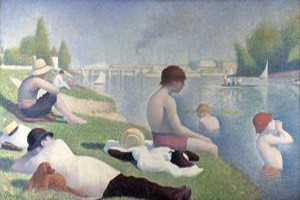
This art and design scheme of work for key stage two gets the children to identify, describe and replicate the painting style of a significant French artist by using pointillism to create scenes of different landscape views. You can use the sequence of six lessons to get the class to explore the work of a significant French artist.
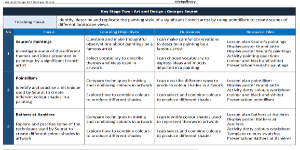
Identify, describe and replicate the painting style of a significant French artist by using pointillism to create scenes of different landscape views

Lesson One : Seurat’s Paintings
Investigate and present some of the different themes and ideas that have been presented in paintings by a significant French artist
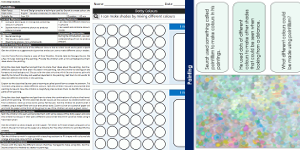
Lesson Two : Pointillism
Identify and practise a technique used by Seurat to create a range of different colour shades in a painting of a landscape scene
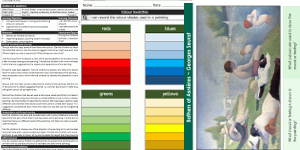
Lesson Three : Bathers at Asnières
Explore and practise some of the techniques that were used by the artist Seurat to create different colour shades in artwork of landscape scenes
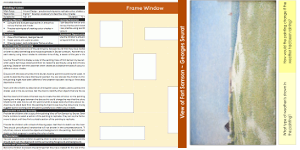
Lesson Four : Painting Frames
Practise a selection of different techniques to replicate some of the special colour shades that were used in a painting by a significant French artist
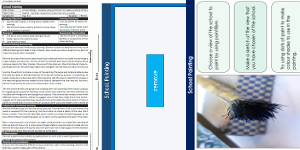
Lesson Five : School Painting
Practise using the painting technique of pointillism to create a picture of the school landscape by combining dots painted with different colour shades
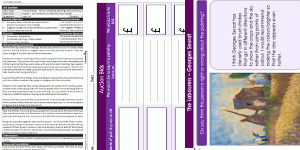
Lesson Six : Art Auction
Review completed paintings of the school landscape that use the pointillism style of painting to emulate artwork by a significant French artist
-
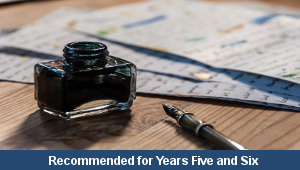
Complaint Letters
Explain and model how to format and structure writing when composing letters of complaint about different issues and scenarios
-

English Spelling Assessment
Assess abilities in spelling different vocabulary words based on the National Curriculum programmes of study for Key Stage Two
-

Subtraction Differences
Explain and model some of the informal and formal written calculations skills that can be used to find the difference between pairs of two and three digit numbers
-

Fraction Equivalence
Investigate, compare and record the values of different non-unit fractions using equivalence between their sets of matching numerators and denominators
